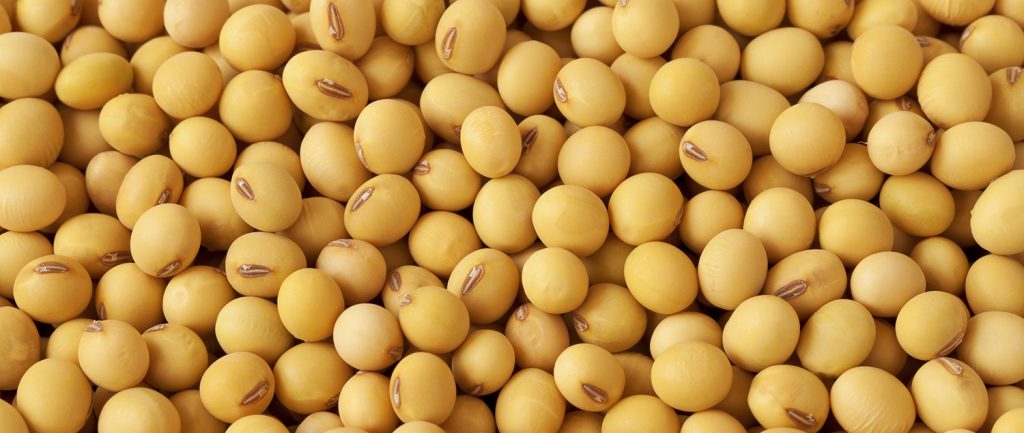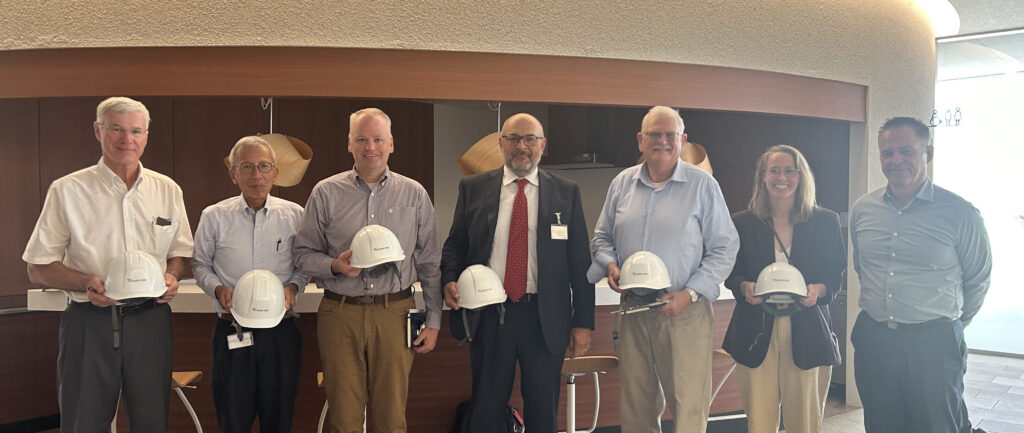While touring Bunge’s soybean crush and oil refining facility in the Netherlands, Minnesota Soybean Growers Association Executive Director Joe Smentek received a clear message.
The demand for U.S. soy at the plant is growing.
“They prefer U.S. soybeans because we have less fatty acids, less color, better quality meal, not as wet,” Smentek said. “The crush facility – and the whole trip, really – was a great opportunity to promote how we’re growing high-quality beans back home in Minnesota.”
Smentek accompanied USDA Under Secretary for Trade and Foreign Agricultural Affairs Alexis M. Taylor’s delegation during USDA’s first-ever regional agribusiness trade mission to the Netherlands. While on the trade mission, participants conducted business-to-business meetings with potential buyers, received market briefings from USDA’s Foreign Agricultural Service (FAS) and industry trade experts and participated in site visits.
Smentek, who also represented the Minnesota Soybean Research & Promotion Council in the Netherlands, visited the region alongside the Specialty Soya and Grains Alliance and officials from the Minnesota Department of Agriculture.

During the mission, Smentek and U.S. participants met with importers from across the Netherlands and northern Europe, including the Royal Dutch Grain and Feed Association and a regional oil association.
“We were able to talk with them about our issues and the USDA heard our concerns and shared our concerns,” Smentek said.
Smentek also sat in on a panel discussing deforestation, and toured a local flour market and food innovation academy. During those visits, Smentek promoted the Ag Innovation Campus, which begins operations this summer.
“It was mind blowing to learn the the logistics of getting flour around the world,” he said. “It’s amazing the cool things they’re doing.”
Smentek was also amazed while visiting Koppert a Netherlands biological company. Smentek, an environmental attorney, saw firsthand how the company’s sustainable technology is capable of killing aphids and other yield-robbing pests. The technology is currently being used in Brazil, but not in the U.S. where it’s currently illegal. The company is hoping to conduct trials to use on a bigger scale to lower the price and eventually make it available to American farmers.
“It was very cool to see fungi killing aphids,” he said. “They spray aphids with a fungus in it and the fungus inserts itself and attacks the bug. It doesn’t grow on a plant; it only grows on bugs, so it will grow on the aphid and suck all the juice out of the aphid. It’s a new tool to have in the tool box with a lower carbon footprint, because the manufacturing costs are lower than the chemicals we currently use.”
According to the latest Soy Stats data, the Netherlands imported $834 million in U.S. whole soybeans. In 2022, the Netherlands imported $2.4 billion of soybean products, up 10 percent from the previous year, with the U.S. as the top supplier.
Smentek also promoted Minnesota’s conservation and production practices, the high quality of Minnesota soybeans and the benefits of soybean trade via the Port of Duluth and the Great Lakes St. Lawrence Seaway System.
“We talked with lots of different partners about what products can come in (to the port), because that’s just as important as what can come out,” Smentek said.




